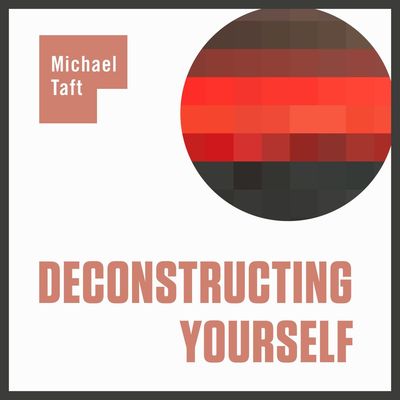Dedicated to liberation in all its forms, Deconstructing Yourself is passionate about fearlessly investigating, attempting, and questioning all things to do with awakening, meditation, mindfulness, brain hacking, consciousness, neurofeedback, and more.Your host Michael W. Taft interviews some of the most interesting thinkers, authors, and teachers around, as well as other offerings. In this hard-hitting, radical, and fun podcast we look at secular post-, non-, un- Buddhism, Vajrayana, nondual Hindu Tantra, philosophy, the neuroscience of the sense of self, neurofeedback and the consciousness hacking movement, aspects of artificial intelligence, entheogens, and much more.If you’re looking for fresh directions, free from dogma and conformism, think of the Deconstructing Yourself podcast as the radical cafe where you can hear from the most interesting luminaries either from the outside edges of dharma, or a fresh take from more traditional teachers. If you’re interested in more, check out the Deconstructing Yourself website at https://deconstructingyourself.com.
https://deconstructingyourself.com
episode 9: The Craving Mind, with Judson Brewer
What do the neurocorrelates of enlightenment, the activation of the posterior cingulate cortex, and the extinction of craving all have in common? They relate to the work of Judson Brewer. Jud talks with Michael W. Taft about his brain biofeedback machine, the neurophenomonolgy of effort vs. non-effort, the feedback loop of reward-based learning, working with the black hole of anxiety, self-referential thinking as a kind of addiction, and much more.
Judson Brewer is an MD-PhD and a thought leader in the field of habit change and the “science of self-mastery”, having combined nearly 20 years of experience with mindfulness training with his scientific research.
A psychiatrist and internationally known expert in mindfulness training for addictions, Brewer has developed and tested novel mindfulness programs for habit change, including both in-person and app-based treatments. He has also studied the underlying neural mechanisms of mindfulness using standard and real-time fMRI. His work has been funded by the National Institutes of Health, American Heart Association, Fetzer Trust among others.
Check out Jud’s recent book, entitled, The Craving Mind.
In this TED talk, Jud describes how to “get out of your own way.”
Show Notes
3:37 – Has Jud found the neurocorrelates of enlightenment?
4:40 – The Default Mode Network and science, the PCC – Craving and tanha – Details of fMRI experiments
5:57 – Trying, Flow and PCC activity, contraction vs. expansion
9:36 – Jud’s own practice in the scanner, metta, calibrating the scale of exp/con
20:45 – High concentration vs. effortlessness – no force necessary – 7 factors of awakening
28:54 – What has Jud found? Excitement vs. happiness – a learning tool
30:30 – What we see with experienced meditators / Best use of his neurofeedback technology
36:09 – Michael’s experience in the device
38:30 – Neurophenomolgy effort vs. non-effort, and the feedback loop of reward-based learning – the perpetual Skinner box of relative rewards – anger vs. kindness
42:30 – Addiction – allcohol, cocaine, smoking – smoking tastes bad when you pay attention
45:50 – Paying attention to eating – Joie de vivre – PCC and digital therapeutics – apps
53:24 – The trickiness of the black hole of anxiety – Unwinding Anxiety app
56:20 – Do we have to practice abstinence or not? – Is addiction a disease?
1:00:27 – Jud’s new book, The Craving Mind
1:01:37 – Self-referential thinking as a kind of addiction – Instagram addiction
1:04:05 – Meditation from the Lab – Dependant Origination (PDF Download) – Siddhis
You can support the creation of future episodes of this podcast by contributing through Patreon.
See Privacy Policy at https://art19.com/privacy and California Privacy Notice at https://art19.com/privacy#do-not-sell-my-info.
